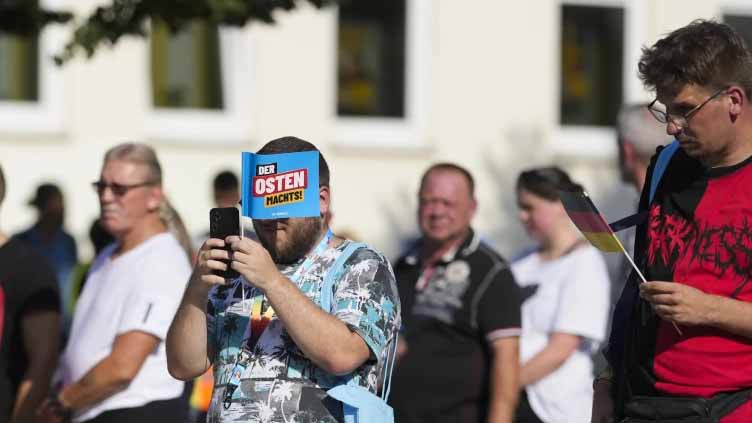Far-right party aims for wins in 2 state elections as Germany's government flounders

World
Germany’s main opposition conservative party hopes to keep Alternative for Germany at bay
BERLIN (AP) — The far-right Alternative for Germany could become the strongest party for the first time in two state elections Sunday in eastern Germany, while a months-old party founded by a prominent leftist also hopes to shake up the picture as the national government has squabbled its way to deep unpopularity.
Germany’s main opposition conservative party hopes to keep Alternative for Germany at bay in Saxony and Thuringia, home to around 4.1 million and 2.1 million people, respectively. But prospects look grim for the three parties in Chancellor Olaf Scholz’s governing coalition, whose constant infighting has added to a flatlining economy and other problems to turn voters off.
Wins for Alternative for Germany, or AfD, would be a potent signal for the party just over a year before the next national election is due. But it would most likely need a coalition partner to govern, and it’s highly unlikely anyone else will agree to put it in power. Even so, its strength could make forming new state governments extremely difficult.
] High ratings for AfD and the new Sahra Wagenknecht Alliance, both at their strongest in Germany’s formerly communist east, have been fed in part by discontent with the national government. Scholz’s alliance argued throughout the campaign for the European Parliament election in June and obtained dismal results. The internal hostilities have intensified over a summer plagued by disagreements about the 2025 budget.
Scholz’s center-left Social Democrats, the environmentalist Greens and the pro-business Free Democrats were weak in these two states to start with, though the former two parties are the junior partners in both outgoing regional governments. They now risk dropping under the 5% support needed to stay in the state legislatures.
Scholz said recently that “gun smoke from the battlefield” is masking the successes of his government of uneasy allies, which set out to modernize Germany. Justice Minister Marco Buschmann said that the government isn’t a “self-help group.” One of the Greens’ national leaders, Omid Nouripour, described the coalition as a “transitional government.”
The mainstream opposition Christian Democratic Union, or CDU, won the European Parliament election. It has led Saxony since German reunification in 1990 and hopes that governor Michael Kretschmer can power it past AfD again, as he did five years ago. In Thuringia, surveys show it trailing AfD, but it hopes to cobble together a governing coalition.
Thuringia’s politics are particularly complicated because the Left Party of governor Bodo Ramelow has slumped into electoral insigificance nationally. Wagenknecht, long one of its best-known figures, left last year to form a new party that is now outperforming it.


